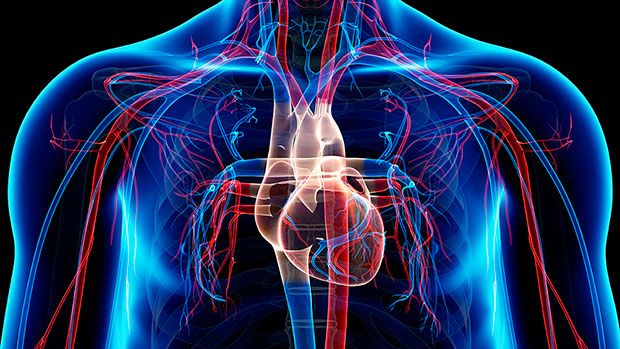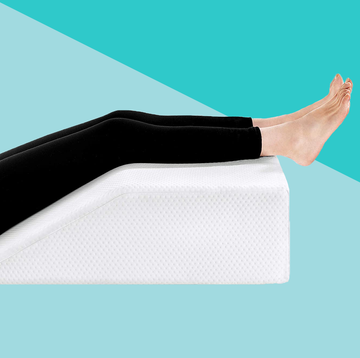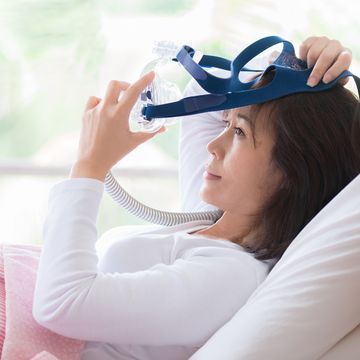- The American Heart Association (AHA) just added a new item to its checklist for measuring cardiovascular health.
- AHA President, Donald Lloyd-Jones, M.D. explains why the update is happening now.
- Plus, what you need to know about how sleep can affect your heart health.
The American Heart Association (AHA) just added an important new metric to measure heart health—and it could change how we consider cardiovascular health. The update adds healthy sleep to the association’s heart health checklist, Life’s Simple 7—making it Life’s Simple 8.
Life’s Essential 8 now includes:
- Diet
- Physical activity
- Nicotine exposure
- Body mass index (learn why this might not be the best measurement of health here)
- Blood lipids
- Blood glucose
- Blood pressure
- Sleep
In addition to the inclusion of sleep in the total eight metrics, the AHA also updated four of the existing metrics (diet, nicotine exposure, blood lipids, and blood glucose) to better reflect recent research. Since the last precedent was established in 2010, there has been a significant amount of new insight published on the concept of cardiovascular health.
According to the Centers for Disease Control and Prevention (CDC), about 659,000 people in the United States die from heart disease each year—that’s 1 in every 4 deaths. It’s important to know the state of your heart health now so you have a chance to improve it if necessary. That’s where the AHA’s My Life Check tool comes into play, which helps you discover your heart health by how you stack up against Life’s Essential 8. The tool scores users up to 100 points based on health and lifestyle factors.
Donald M. Lloyd-Jones, M.D., president of the American Heart Association says the AHA felt it was time to look at the concept’s strengths and limitations and see how they could upgrade the My Life Check tool. He adds that research on sleep has come a long way and is being measured more routinely now, in studies, but also with the use of heart monitors on smartwatches and other wearable devices.
“We just have better ways to understand how long we are sleeping for and to a certain extent, what the quality of that sleep is. Sleep is related to each of the other seven metrics. It’s related to our weight, our diet, our physical activity, our blood pressure, our risk for diabetes. But it's also independently contributing to our health, so we felt it was time to add an eighth metric.”
How does sleep contribute to heart health?
The relationship between sleep and heart health is bidirectional, meaning that sleep affects heart health and vice versa.
“Our sleep and our quality of sleep is related to our levels of stress, it’s related to how much physical activity we’re getting, but importantly, it also drives very much of what our blood pressure is doing overnight and the following day,” says Dr. Lloyd-Jones.
Sleep can actually dictate what kinds of food we will find satisfying, he says. Sleep also certainly has important and profound impacts on whether we are storing calories or we are burning calories, he continues. “In the long term, these things affect our risk for diabetes, they affect our overall health and wellbeing both psychological and physical,” he says.
Take a look at the My Life Check tool to get your score and find new ways to improve your heart health now.
Madeleine, Prevention’s assistant editor, has a history with health writing from her experience as an editorial assistant at WebMD, and from her personal research at university. She graduated from the University of Michigan with a degree in biopsychology, cognition, and neuroscience—and she helps strategize for success across Prevention’s social media platforms.












